2, December 2019
Attack on a civilian aircraft, an inside job by the forces of La Republique du Cameroun 0
A civilian aircraft, MA60 operated by the Cameroon Airlines Company (CAMAIRCO) was attacked at the Bamenda Airport on Sunday 1 December 2019. No passengers or crew were hurt and the plane landed safely.
It is unfortunate, that some media houses both within La République du Cameroun and elsewhere were misled into reporting that the attack was carried out by Southern Cameroons self-defense forces fending off the military invasion by La Republique du Cameroun since 2017. Regrettably, these media outlets base their reports on propagandist messages, recklessly propagated by some armed groups in search of unnecessary notoriety.
The Interim Government has investigated the incident and can affirm with confidence that the attack was not carried out by Southern Cameroons Restoration Forces. A careful investigation points to an attempt by La Republique du Cameroun to sully the credibility of the Southern Cameroons restoration quest. In as much as self-defense forces in several parts of Southern Cameroons possess the capacity to attack aircrafts, those within Mezam County, where the incident occurred, are yet to acquire such weaponry.
The circumstances and location indicate that it is the handiwork of Mr. Biya’s Field Commanders who are ardently trying to insulate their genocidal invasion by depicting the restoration forces as terrorists. The Interim Government would like to draw the attention of the International community to the fact that the airport in question had long been transformed into a military/airbase and command centre for operations by the government of La Republique du Cameroun. It hosts a large detachment of Cameroun’s infantry and Special Forces trained to fight Boko Haram in the North, but relocated to the Southern Cameroons after Mr. Biya declared war on us in 2017. The area is sufficiently guarded and heavily fortified, thus making this kind of attack possible only from inside.
This is not the first attack by regime forces or its proxy militias. In fact, they attack hospitals, scorch villages, kill babies, women and the elderly, and carry out beheadings. Recently in October 2019, regime forces hijacked a passenger bus in Ngo-Ketunjia to attack RFs on the Kumbo road, using the passengers as human shields. Confronted with this situation, the RFs tactically withdrew to avoid a bloodbath. The use of civilian vehicles, taxis and surveillance with trucks and planes painted in UN colours and insignia are all part of their modus operandi. In some areas in Donga Mantung and Menchum counties, the genocidal army uses hospitals and schools as military bases.
The attack on the aircraft is therefore a ploy by the government of La Republique du Cameroun to divert attention from its genocidal onslaught, draw sympathy from the international community and thus, declare a no-fly-zone to douse calls for a UN humanitarian intervention in the Southern Cameroons.
In the same vein, we condemn the killing of a humanitarian worker in Donga Mantung county by unidentified armed men. While we have not been able to identify the perpetrators of this crime, we believe that it is not unconnected to the recent creation and spread of local militias in the area by the colonial governor, Mr. Adolphe Lele. Although this seems to be part of the invader’s strategy to fight the restoration forces, it is also an instrument of extortion and the fight against restorationist sympathies, and so will target non-combatants as has been seen before.
We deplore these uncouth tactics by La Republique du Cameroun and call on the International Community to stop the catastrophe unfolding in the Southern Cameroons or face another Rwanda.
Yours faithfully,
Dabney Yerima
Vice President
The Federal Republic of Ambazonia


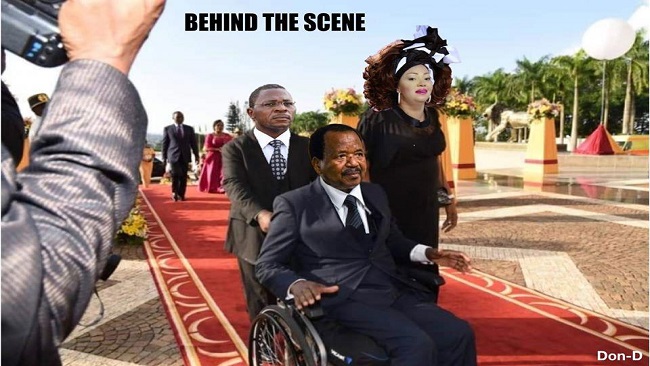
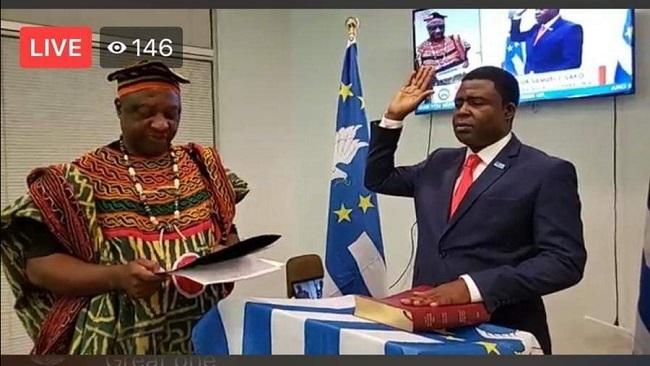
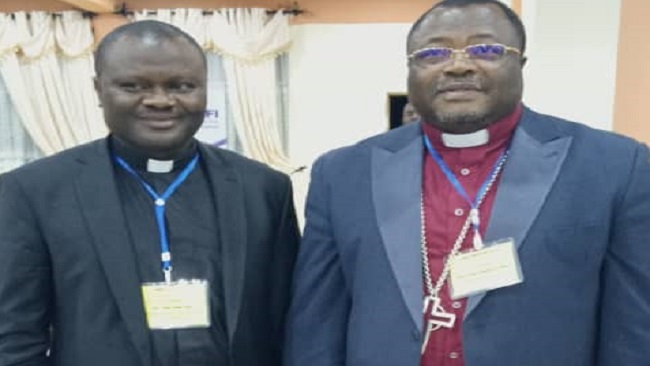
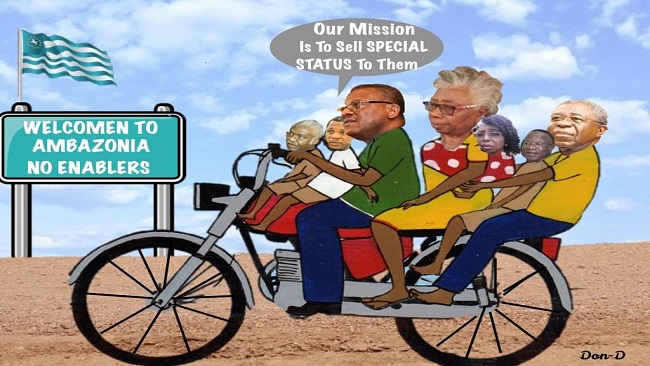
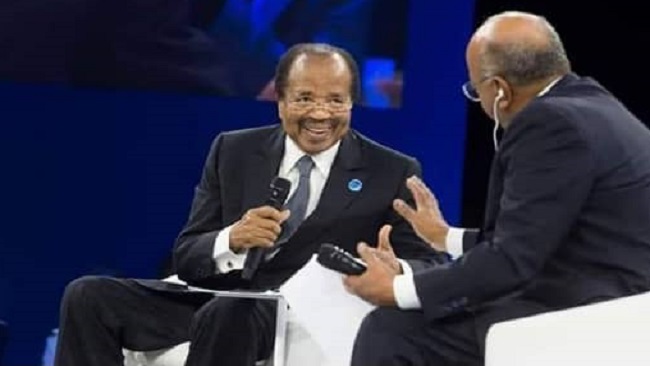



















4, December 2019
Biya’s rhetoric in public and the 37 Ambazonian asylum seekers abducted in Taraba, Nigeria 0
The 37 Southern Cameroons asylum seekers abducted in Taraba State in Nigeria on the 31st of December 2017 and illegally deported to French Cameroun will be appearing before the Yaoundé Military Court tomorrow the 5th December 2019.
The 37 innocent Southern Cameroons civilians are facing charges of terrorism acts of terrorism, secessionism, and lack of National Identification Cards.
The accused have spent a year incommunicado in the bunkers of the National Gendarmerie Headquarters ( SED) in Yaounde without access to sunlight, no medical attention and are undergoing torture.
Abducted and illegally deported to Yaoundé on the 26th of January 2018,They were later transferred to the Kondengui Central Prison on the 04th January 2019 where they have spent another year marking two years of unlawful detention without trial.
They will be appearing before the Military Court in Yaoundé for the 3rd time.